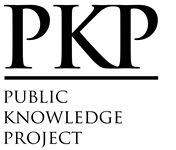Understanding the Complexities and Resource Sustainability in Afram Plains, Ghana
Abstract
The main objective of the study was to determine the key driving forces behind the ever increasing problem of tree species loss and environmental degradations in the Afram plains and propose management action areas for reducing the loss. The study used participatory research method tools to assess farmers' views on their livelihood strategies and the causes of dwindling forest resources in the area. There may be many forces jeopardising forest resources in the study area but charcoal production was reported as the single most important factor driving the loss of tree species in the area. Charcoal burning was becoming increasingly a full time occupation for many young people as their families struggle with poor soil fertility and declining agricultural productivity. There is, therefore, the need to consider financial and technological investment in agricultural diversification to be able to reduce biodiversity loss within the agroecosystems of the area. It will significantly help these forest dependent communities to diversify their economies and soften the impacts of charcoal production and farming activities on the agroecosystem biodiversity. In addition, due to low level capabilities of local people, an effective and efficient implementation of educational programs is needed to enhance their capabilities in managing agroecosystems. Finally, it worth emphasising that efforts to reduce forest tree species loss and environmental degradation will be jeopardised or eventually be unsustainable unless project initiators address cash income and energy needs of local people. Agroforestry systems including plantations development could be part of the solutions to sustainable management of the agroecosystems in the area.
Full Text:
PDFDOI: https://doi.org/10.5296/emsd.v2i1.3040
Refbacks
- There are currently no refbacks.
Copyright (c) 2013 Mark Appiah

This work is licensed under a Creative Commons Attribution 4.0 International License.
Environmental Management and Sustainable Development ISSN 2164-7682
Copyright © Macrothink Institute
To make sure that you can receive messages from us, please add the 'macrothink.org' domain to your e-mail 'safe list'. If you do not receive e-mail in your 'inbox', check your 'bulk mail' or 'junk mail' folders.
------------------------------------------------------------------------------------------------------------------------------------------------------------------------
